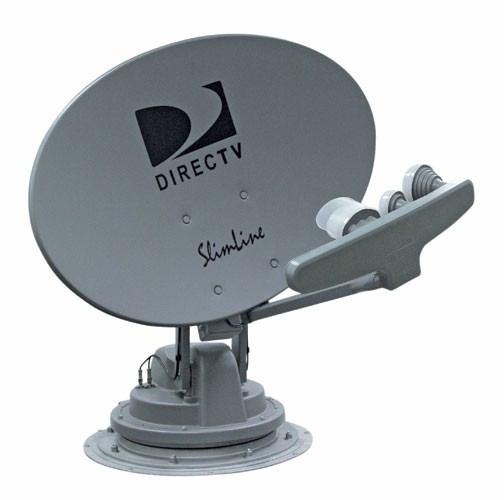 Top Class Actions
Top Class Actions
DIRECTTV in Direct Line of Fire over alleged dodgy business practices. A lawsuit by DIRECT TV customers who were illegally charged “early cancellation penalties”—fees of up to $480—has been granted “class action” status by a California court, potentially leading to millions of dollars in refunds.
FYI—DIRECTTV is the largest satellite TV provider in the US with over 16 million customers. Doesn’t take a rocket scientist to figure out that even a portion of that number of plaintiffs could translate to a rather large settlement.
The suit, filed in September 2008, was certified April 22, 2011, on behalf of DIRECTTV customers who were charged a cancellation penalty when they cancelled service. DIRECTTV applied its unlawful penalty provision to all of its customers including, in some cases, customers who terminated because the satellite equipment stopped working or they were no longer able to receive service when they moved.
In other cases DIRECTV would unilaterally extend a consumer’s “programming commitment” by a year or two if malfunctioning equipment needed to be replaced or the customer decided to upgrade receivers and then charge the fee if the customer stopped service after that. In some cases, according to the suit, DIRECTTV took the fees from their customers’ bank or credit card accounts without their permission.
Did any of this happen to you?
Top Settlements
Insured now Assured. Here’s a happy ending to a rather nasty insurance scam. National Western has agreed to pay more than $17 million to settle a class action lawsuit it faced over allegations that it targeted senior citizens—unfairly.
Short version—the suit alleged that National Western set up an unlawful group annuity policy that was issued through an out-of-state group created by National Western, and that the company sold the annuity to individual senior citizens, rather than to members of any groups.
Case in point, the suit alleged that former life insurance agent Ezra Chapman sold a National Western contract to an 83-year old widow, under the pretense that the elderly woman would never lose money. Chapman allegedly failed to disclose to the woman that National Western would apply surrender penalties if she withdrew money or if she died during the 15-year surrender penalty period, the California Department of Insurance (CDI) reported.
Sadly, but perhaps predictably, the woman did die during the 15 year period, and National Western deducted 25% as a penalty, denying her beneficiary the entire amount of the annuity. In 2005, the CDI actually intervened in the case.
Some 3,274 senior citizens who purchased annuities in the case—Clark v. National Western Life Insurance Co—are eligible for a share of the settlement.
What a Racket! (Ok, couldn’t resist…) It’s just fraud, fraud, and more fraud this week. This preliminary settlement relates to a class action brought against Big5 Sporting Goods for allegations of using false price comparisons to market and sell tennis, squash and racquet ball rackets.
Apparently, the lead plaintiff alleged that he was induced to purchase a Wilson n5 tennis racket when Big5 Sporting Goods advertised it with a sale price of $49.00 along with representations that the “regular” price was $229.00. But, if it sounds too good to be true…the plaintiff later learned that the racket was a low quality racket specially made for Big5 that never had a regular price of $229.00. Bingo! Lawsuit! Filed on behalf of all consumers who purchased similarly falsely advertised rackets sold by Big5.
The tentative settlement reportedly has a minimum value of $4,000,000. All consumers who purchased a tennis, squash or racquet ball racket from a Big5 store in the United States between August 7, 2005 and March 18, 2011 are entitled to a refund of the full amount of the price they paid for each racket, subject to a maximum payment of $50 per racket purchased.
Should less than the $4,000,000 minimum payout be claimed, the balance of the settlement will be converted to merchandise vouchers and donated to the Boys and Girls Club of America for distribution to club members in states in which Big5 operates its stores (Arizona, California, Colorado, Idaho, Nevada, New Mexico, Oklahoma, Oregon, Texas, Utah, Washington and Wyoming).
The settlement also includes an injunction prohibiting Big5 from including comparative “regular” prices on merchandise unless the “regular” price was actually in effect on at least 45 days of the 90 days immediately preceding the date that the advertised sale commences.
It’s all just ‘Business as usual…’
And that’s it for this week. See you at the bar.
